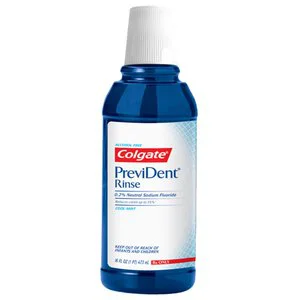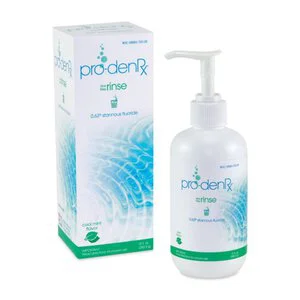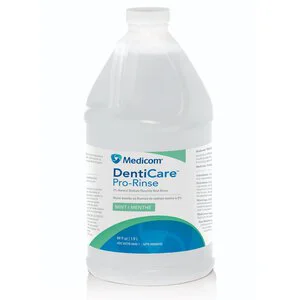Filter Products
Filter Products
Fluoride Rinses
As low as
$14.01As low as
$51.57Why do dentists use fluoride rinses?
Dentists use fluoride rinses because fluoride is effective in preventing tooth decay. Fluoride rinses provide a topical application of fluoride to the teeth, which helps strengthen tooth enamel and makes it more resistant to acid attacks from bacteria and sugars in the mouth. The benefits of fluoride rinses for dental patients include reduced risk of cavities, remineralization of early tooth decay, and overall improved oral health.
What are the benefits of fluoride rinses for dental patients?
Fluoride rinses provide a topical application of fluoride that can help prevent tooth decay and improve oral health. Benefits of fluoride rinses include:
- Reduced risk of cavities: Fluoride rinses can significantly lower the chances of developing cavities by inhibiting the growth of harmful bacteria and strengthening the teeth against acid attacks.
- Remineralization of early tooth decay: Fluoride can aid in the remineralization process, where minerals like calcium and phosphate are replenished in weakened areas of the tooth, reversing the early stages of decay.
- Strengthened tooth enamel: Fluoride helps to strengthen the enamel, the protective outer layer of the teeth, making it more resistant to acid erosion and reducing the likelihood of enamel wear and tooth sensitivity.
- Improved overall oral health: By effectively preventing tooth decay, fluoride rinses contribute to better oral health, which can lead to improved gum health, fresher breath, and a reduced risk of other oral health issues.
- Convenient and easy to use at home: Fluoride rinses are user-friendly and can be easily incorporated into daily oral hygiene routines, allowing individuals to take an active role in maintaining their oral health and preventing tooth decay.
How does fluoride rinse compare to other forms of fluoride treatment, such as fluoride gel or fluoride varnish?
When comparing fluoride rinses to other forms of fluoride treatment like fluoride gel or fluoride varnish, rinses offer convenience and ease of use. They can be incorporated into daily oral hygiene routines and are suitable for patients of all ages. Fluoride gels and varnishes, on the other hand, are typically applied by dental professionals during in-office visits. While they provide higher concentrations of fluoride, they may require more time and effort, and may not be as accessible for regular use at home.
How can dental professionals incorporate fluoride rinse into their practice to improve patient outcomes and satisfaction?
To improve patient outcomes and satisfaction, dental professionals can incorporate fluoride rinses into their practice by educating patients about the benefits of fluoride and proper oral hygiene. They can recommend specific fluoride rinses based on individual patient needs and provide instructions on how to use them effectively. Dental professionals can also monitor patients' oral health and provide regular fluoride treatments in the office to complement the at-home use of fluoride rinses, ensuring comprehensive protection against tooth decay.










